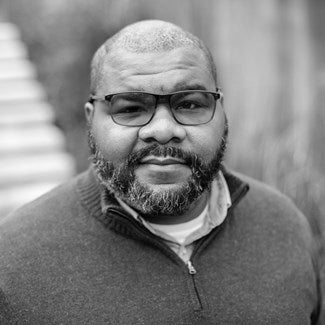C.L. Bohannon
Education
Bachelor of Landscape Architecture, University of Arkansas at Fayetteville
Master of Landscape Architecture, Virginia Tech
PhD in Architecture and Design Research, Virginia Tech
Biography
C.L. Bohannon, PhD, FASLA, is an Associate Professor in the Landscape Architecture Department and Senior Associate Dean of Faculty Affairs and Community Engagement. Bohannon is a nationally recognized scholar and educator in the areas of community-engaged design and pedagogy, social and environmental justice, and African American landscapes, especially in the American South.
Prior to joining UVA in 2022, Bohannon was an Associate Professor of Landscape Architecture and Interim Director in the School of Architecture + Design, housed in the College of Architecture and Urban Studies, at the Virginia Polytechnic Institute and State University. He was also Director of the Community Engagement Lab and a faculty principal since 2018 at the Leadership and Social Change Residential College at Virginia Tech, living and working alongside students.
Bohannon’s research and pedagogy are closely connected and examine the asymmetrical power relationships and systems that produce social and environmental inequities in marginalized communities, or he describes it, “the uneven geographies” that result in, among others, health disparities, gentrification, forced migration and displacement. During his 18 years of teaching experience, he has introduced design students to these inequities and developed a pedagogy and praxis for redress through the interdisciplinary study of community. This approach, defined as “R3” — “Real People, Real Problems, Real Projects,” incorporates deep learning through, in part, methods of community mapping and storytelling that build leadership skills for effective service and citizenship.
As Founder and Director of the Community Engagement Lab, Bohannon has established longstanding placed-based experience working with communities throughout the Southwest Virginia region of Appalachia, focused on food insecurity, community histories and narratives, and urban vacancy. As part of this work, he has crafted a model for “community engagement as a leaderful practice” that is guided by a democratic and inclusive approach to design and leadership practice driven by many people enacting change together and including the intentional acknowledgement of all who contribute to improving communities.

